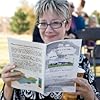books by Japanese authors
Maryka
2498 books
37 friends
37 friends
Patrick
1376 books
292 friends
292 friends
Loren
460 books
62 friends
62 friends
League of Native Nations
12 books
3 friends
3 friends
Esarah
139 books
6 friends
6 friends
dannymac
88 books
74 friends
74 friends
Vera
863 books
32 friends
32 friends
Jake
1376 books
89 friends
89 friends
More voters…
Comments Showing 1-7 of 7 (7 new)
date newest »
newest »
 newest »
newest »
message 1:
by
An
(new)
Mar 18, 2010 01:24AM
 Why is Ishiguro on this list?
Why is Ishiguro on this list?
reply
|
flag
Hmm...yes, I'm wondering too. Also, why is John Allyn on the list?
 True -- Allyn probably shouldn't be, either, although "the 47 Ronin" is one of THE great, classic Japanese stories overall. Anyone know a Japanese author who's written a book about it?
True -- Allyn probably shouldn't be, either, although "the 47 Ronin" is one of THE great, classic Japanese stories overall. Anyone know a Japanese author who's written a book about it?Re Ishiguro: Maryka, you created this list -- would you want Ishiguro to be removed (because he really is English, not Japanese)?
He's both, actually:
Kazuo Ishiguro OBE (born 8 November 1954) is a Japanese–English novelist. He was born in Nagasaki, Japan, and his family moved to England in 1960. Ishiguro obtained his Bachelor's degree from University of Kent in 1978 and his Master's from the University of East Anglia's creative writing course in 1980. He became a British citizen in 1982.
From Wikipedia: http://en.wikipedia.org/wiki/Kazuo_Is...
Kazuo Ishiguro OBE (born 8 November 1954) is a Japanese–English novelist. He was born in Nagasaki, Japan, and his family moved to England in 1960. Ishiguro obtained his Bachelor's degree from University of Kent in 1978 and his Master's from the University of East Anglia's creative writing course in 1980. He became a British citizen in 1982.
From Wikipedia: http://en.wikipedia.org/wiki/Kazuo_Is...
 Here are a few snippets of what Ishiguro himself has said on the subject (as well as on the role that Japan, and Japanese characters, (have) play(ed) in his novels):
Here are a few snippets of what Ishiguro himself has said on the subject (as well as on the role that Japan, and Japanese characters, (have) play(ed) in his novels):"ISHIGURO: I'm certainly glad to hear you say that you couldn't really locate me autobiographically. Increasingly these days I think, there's a tendency for people to want to locate some clearly autobiographical figure in people's novels. I didn't sense it so much, say ten or fifteen years ago. It might just be me, but there seems to be an increased interest in — in some ways, people want to bypass the work of fiction. They want to know about the author. They're always saying, "Is this character based on you?" With some authors this is the case. They work like that. But I've always had an oddly oblique relationship to my characters. I should say that there's a kind of emotional autobiography in there somewhere perhaps. About displacement, exile. But none of the things I describe happened directly to me. Of course, there's a character here who as a boy who moves from the East to the West in strange circumstances, and can't quite fit in in either place. But that's not really me (...) it's not the issue.
(...)
I think a lot of writer's, certainly British writer's (...) of my age and younger, you'll find to a peculiar degree, they write about either the Second World War, the period between the wars, or the First World War. Certainly speaking for myself, I think it was a kind of an occupational inferiority complex I had when I first started to write fiction. I felt that I lived in this very safe, quiet, affluent, corner of the world. And I felt, as a person, very privileged. But it wasn't the front line of where things were happening. "He wanted to write the big novels of the day." It was difficult to write that kind of "big novel" by just describing the life that I knew immediately around me. The life in London in the 1980s as it was then. Because this was safe, quiet, whatever. Surely for the big themes, you had to go to places like Eastern Europe, Africa. To some extent, we, in a very decedent way, felt envious towards writers who lived in oppressive regimes because they could just describe their everyday life, and it was immediately big and significant.
(...)
I went from Japan to England as a child, at the age of five. I moved with my family. I was always under the impression that we were going to return to Japan. My parents had planned to return to Japan after a year, perhaps two years. Between the age of five and fifteen, I was fully under the impression that my life would be in Japan. So I had built up a very important place in my head called Japan, when I was growing up in England. A place where I would ultimately belong. A place built up of my childhood memories, and I had quite a lot of them. (...) And my speculation about what it would be like when I went back, all the educational material that kept getting sent to me. . . So I had a very thorough world in my head that I called Japan. And only later, when I realized that I wasn't going to go back to that Japan, when I realized that in any case, this Japan of mine probably didn't exist anywhere except in my head. If I went on a plane to this place called Japan, it wouldn't be anything like it. Also when I realized that with every year that went by, this rather precious world was fading in my head. I think there was a real motive, a real impulse to write it down. To actually put this whole world that I had in my head, everything I felt about it, everything I knew about it — its colors, its moods, its shortcomings — I wanted to have it all safe in a work of fiction so that it would be preserved. And I could go on and forget it and I could still say, "it's there." I didn't realize it at the time. (...)
Q: Do you take a more direct interest in the Japanese translations of your works, or do you leave it alone?
ISHIGURO: No. I can't read or write Japanese. I have no authority over the translation anyway, and short of getting some Japanese person to read it out loud to me, and even then my command of the language isn't sufficiently good. These days, I can say honestly, I don't care particularly care that much more for Japanese culture than any other culture. Well, that's an exaggeration — but as far as the translation goes, there's nothing special about it.
(...)
My parent's didn't particularly immerse me in Japanese culture. But they did try to keep up a Japanese side to my education. This was just a practical thing, because they thought I was going to have to grow up in Japan. I was slightly resistant to that until a certain young adult age. I wasn't interested in Japanese culture, I didn't want to read Japanese books in translation or seek out Japanese art movies until I was in my 20s. It was always this stuff that my parents wanted me to do. But I was actually much more interested in the things that young people that age are always interested in: rock music and so on. There weren't any Japanese rock 'n' roll superstars, so I wasn't particularly interested in Japan. Today it might be different, what with Pokeman or whatever.
Nevertheless, I think there was a Japanese influence insofar as I was brought up by Japanese parents. And I was very conscious all the time while growing up in the home counties of England, that they were very different to my friend's parents. The values they held, they way they looked at British society. I probably looked at British society through their eyes. (...) I think I must have grown up very much looking at the world around me at this slight distance. The Japanese influence perhaps came in like that, rather than overtly in being immersed in Japanese culture."
(http://www.writersblocpresents.com/ar...)
"SPIEGEL ONLINE: What does it mean to be an international writer?
Ishiguro: Well, one important aspect is that if I spend time here in Germany or somewhere else explaining why I've written certain passages, when I go home and try to write my next book, somewhere in the back of my mind I have this idea that I'm going to be translated. Something that looks great in English may not work in other languages because it relies too much on puns, brand names, cultural references. And I feel a pressure to remove these things from my writing. This can be very dangerous.
SPIEGEL ONLINE: But aren't you quite suited to be a global writer? You were born in Japan, your family moved to England when you were 5. Are you still rooted in Japanese culture?
Ishiguro: Of course, England is my home. But my parents are both well and alive, and if I speak to them now on the phone I'll go into a very bad child's Japanese. That's the only language I ever speak to them in. (...)
SPIEGEL ONLINE: Weren't you an outcast as an Asian boy in suburban England?
Ishiguro: Far from it. I was actually a very popular local figure. I was head choirboy in the local church, and I knew everybody. The British are interesting in that way. At some level they can be accused of being very racist, but at the individual level the British have always been very open. I grew up in Britain before it became a multicultural place, so in many ways I have a nostalgia for an England that's vanished -- the England of my childhood has actually disappeared."
(http://www.spiegel.de/international/0...)
















































































































